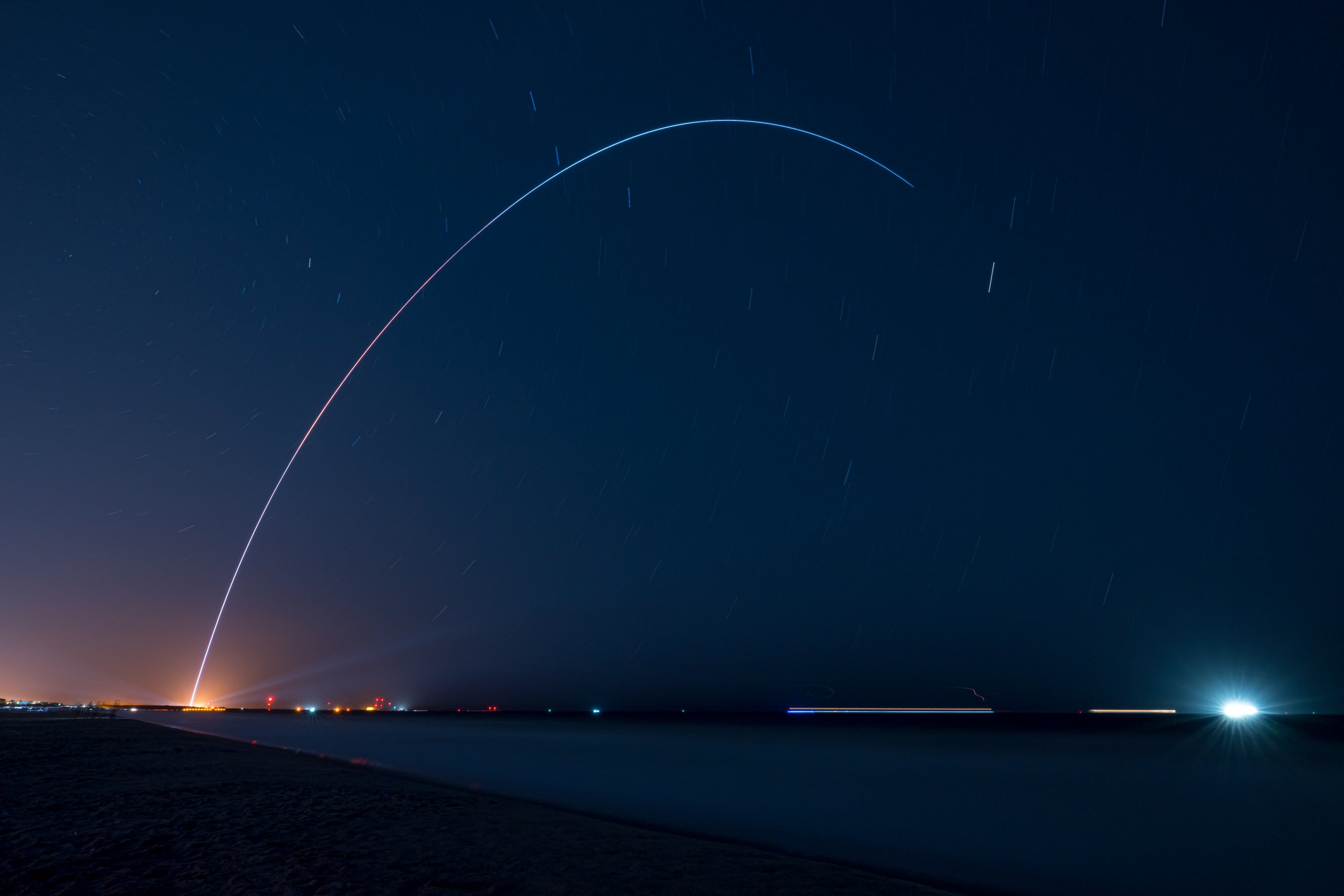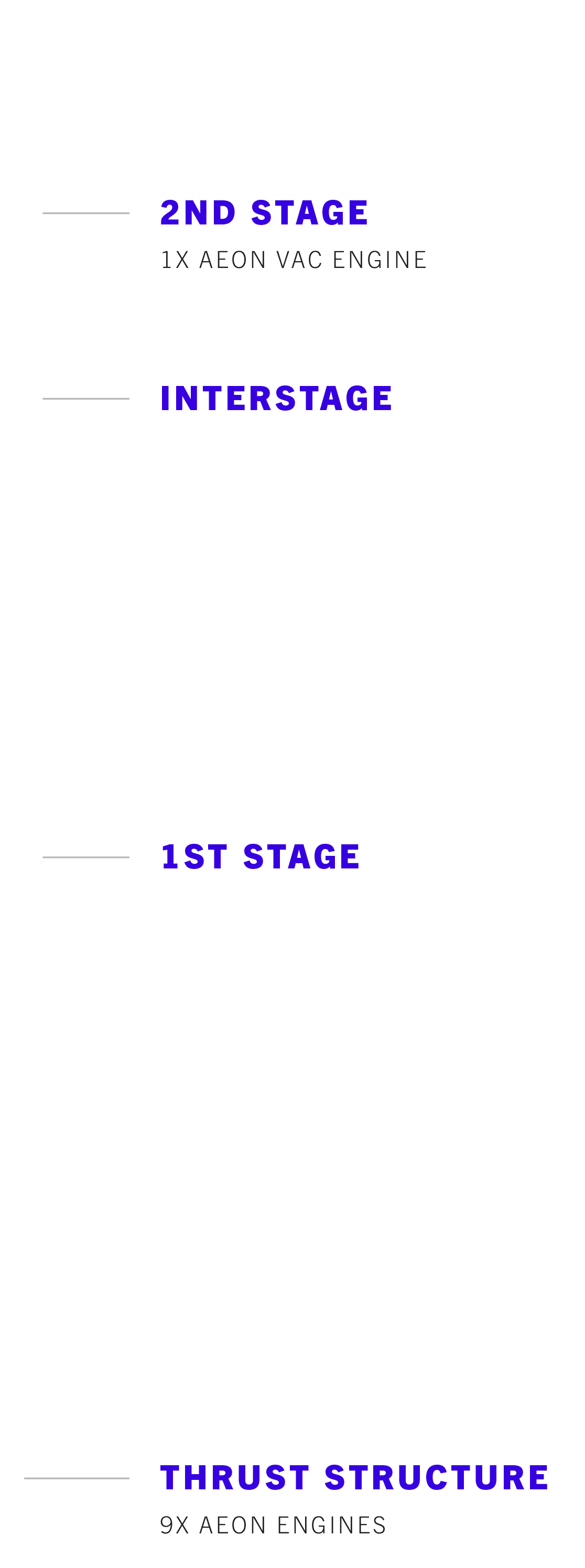
On March 22, 2023, Terran 1 became the first 3D printed rocket to reach space. This maiden voyage, dubbed our ‘Good Luck, Have Fun’ (GLHF) campaign, proved that large-scale 3D printed objects are flight-worthy, even in dynamic environments.
Measuring in at 110 feet tall and 7.5 feet wide, Terran 1 was the largest 3D printed object to exist – not to mention attempt orbital flight. The vehicle was 85% 3D printed by mass, with nine Aeon 1 engines on its first stage and one Aeon Vac on its second stage. Liquid oxygen (LOX) and liquid natural gas (LNG) were used as propellants, since they enable efficiency and high-rate reusability.

First methane fueled rocket in the West to reach space, past the 100km Karman Line.
First 3D printed rocket to fly and pass Max-Q, the point of maximum stress on the rocket.
First methane orbital-class rocket to successfully complete stage 1 flight, main engine cutoff, and second stage separation in the West.
First-ever second stage ignition attempt during the vacuum of flight for a methane fueled orbital rocket in the West, collected first-ever flight data.
Mission Overview
Terran 1 Flight Article
Height: 33.5 m / 110 ft
Diameter: 2.28 m / 7.5 ft
Mass (Dry): 9,280 kg / 20,458 lb
Aeon Engines
Propellant: LOX / LNG
Thrust (Sea Level): 100,000 N / 23,000 lbf per engine
Thrust (Vac): 113,000 N / 25,400 lbf
Target Performance Capability
Payload: 1,250 kg / 2,756 lbs to LEO
Altitude: 200 km / 124 mi

An Engineering Pathfinder
Terran 1 demonstrated our ability to simultaneously develop novel technologies while planning, designing, testing, and operating an orbital-class launch vehicle. Building on this foundation, we are now focused on Terran R, our medium-to-heavy lift reusable rocket. Key engineering learnings from the Terran 1 program – including LOX methane propulsion systems, gas generator combustion cycles, guidance, navigation, and control algorithms, in-house developed flight software, structural dynamics, and aerothermodynamics – are directly relevant to the Terran R vehicle.



Follow the Journey